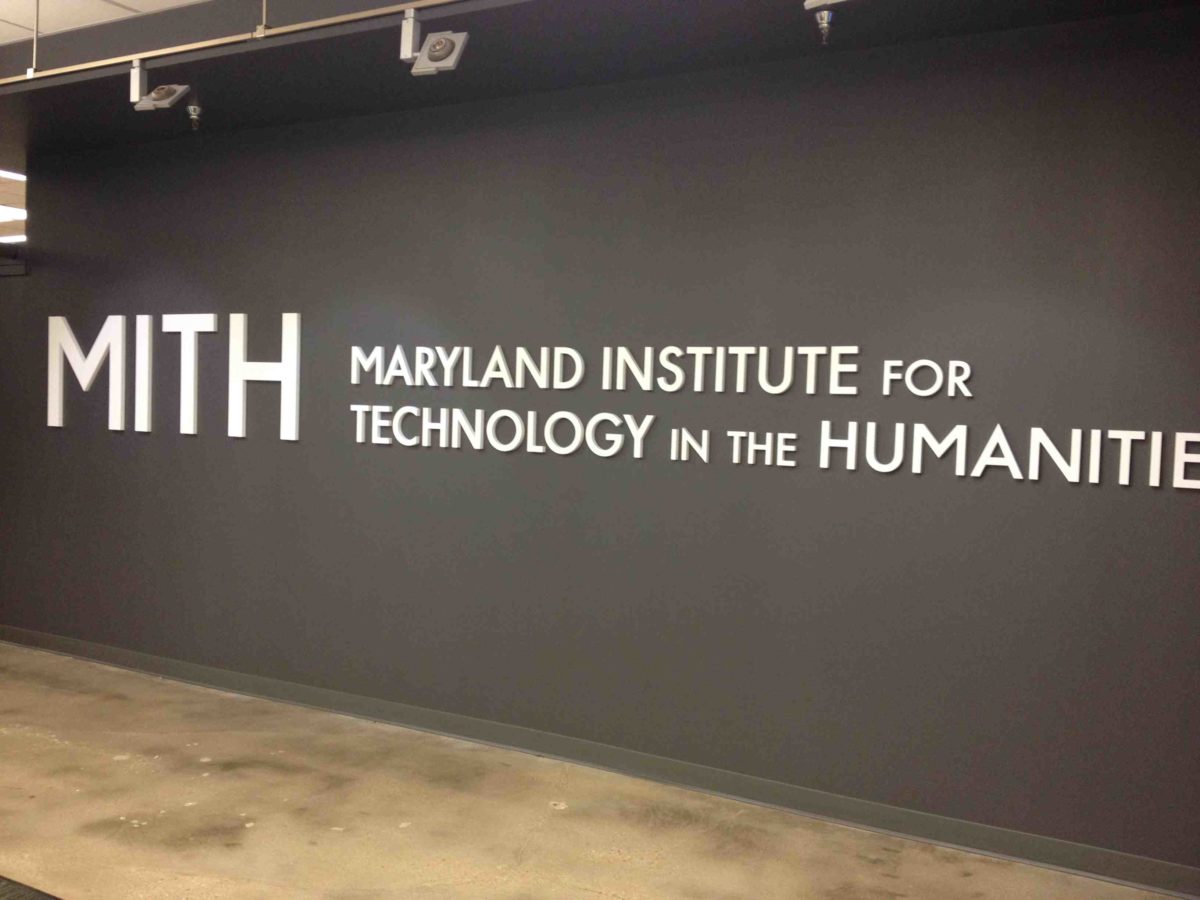In an election cycle where white supremacy, xenophobia and racism have found their way into every corner of your timelines, feeds and screens, you’d be forgiven if you decided not to spend an evening clicking around in the darkest corners of the internet.
But that’s what about 70 students and academics did last Thursday night at the Maryland Institute for Technology in the Humanities (MITH) in College Park.
With its “Night Against Hate,” MITH rallied a community to build a database of hate groups online — websites, Twitter accounts, Instagram accounts and more.
“The immediate result is producing block lists for activists and others who feel they see too much hate online,” MITH director Neil Fraistat told participants.
The organization had already collected over six months worth of tweets containing hate speech, including many tweets related to the first two presidential debates. By collaboratively developing a spreadsheet of handles, hashtags and usernames used by verified hate groups, they’ll be able to produce future research on combating online hate speech.
Nice discussion about the need to configure/collect data differently depending on different goals—this is just a starting point! #resisthate
— Dr. Katie Kaczmarek Frew (@kkaczmawr) October 14, 2016
MITH, known for its work analyzing Ferguson-related tweets and developing scholarly digital humanities tools, based their data on the Southern Poverty Law Center’s Extremist Files, which lists 164 U.S. hate groups. While some participants worked to research these group, others discovered new groups, from members of the trendy new alt-right movement to local hate groups in the DMV area.
As they worked, participants swapped feedback with remote participants in a team messaging channel, hosted by former MITH researcher Amanda Visconti’s public Digital Humanities Slack group.
Reading anti-Semitic, anti-black and anti-gay propaganda for hours on end can get a little grim, if not outright triggering.
“Please, take care of yourself,” was the frequent refrain of MITH’s assistant director, Purdom Lindblad, who stopped the group several times for mental health breaks and discussions on how the research could be refined or used.
Lindblad also encouraged participants to use incognito browsing or the Tor browser for privacy and security reasons.
“You don’t want ads following you around, or campus IT coming after you for looking at KKK websites,” she said.
https://twitter.com/nowviskie/status/786735813216247808
https://twitter.com/JaimeMears/status/786733350367088641
MITH holds weekly Digital Dialogues with digital humanists and scholars throughout the year. These talks, which this fall will focus on African-American history and culture, are open to the public and available via livestream.
Join our growing Slack community
Join 5,000 tech professionals and entrepreneurs in our community Slack today!
Donate to the Journalism Fund
Your support powers our independent journalism. Unlike most business-media outlets, we don’t have a paywall. Instead, we count on your personal and organizational contributions.

Maryland firms score $5M to manufacture everything from soup to nanofiber

National AI safety group and CHIPS for America at risk with latest Trump administration firings

How women can succeed in male-dominated trades like robotics, according to one worker who’s done it

